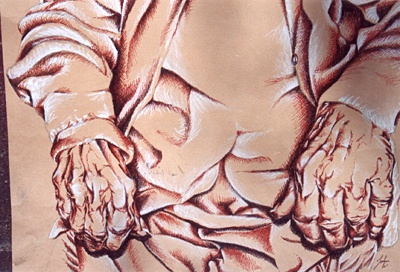All Nonfiction
- Bullying
- Books
- Academic
- Author Interviews
- Celebrity interviews
- College Articles
- College Essays
- Educator of the Year
- Heroes
- Interviews
- Memoir
- Personal Experience
- Sports
- Travel & Culture
All Opinions
- Bullying
- Current Events / Politics
- Discrimination
- Drugs / Alcohol / Smoking
- Entertainment / Celebrities
- Environment
- Love / Relationships
- Movies / Music / TV
- Pop Culture / Trends
- School / College
- Social Issues / Civics
- Spirituality / Religion
- Sports / Hobbies
All Hot Topics
- Bullying
- Community Service
- Environment
- Health
- Letters to the Editor
- Pride & Prejudice
- What Matters
- Back
Summer Guide
- Program Links
- Program Reviews
- Back
College Guide
- College Links
- College Reviews
- College Essays
- College Articles
- Back
Grandfather Teiji Suzuki, World War II Veteran MAG
World War II was underway, and mygrandpa was about to have the biggest adventure of his life. He was called up asa military policeman and sent off to the war.
The name of his ship was theRashin Maru, a merchant cargo ship. It weighed 6,000 tons and carried 2,600 men.It left Japan on August 7, one day after the atomic bomb was dropped onHiroshima. The Rashin Maru was surrounded by smaller ships to keep it safe, butone day, Russian planes flew overhead. Soon after, his ship was torpedoed by thesubmarine USS Pargo. It was hit three times, and the ship sank in 27seconds.
Most of the men on board were below decks, but my grandpa wasprepared. Just in case the ship went under, he had stayed on top. He could notswim, so he tied three pieces of bamboo on each side of his body to make a lifevest.
Many on the ship thought they could swim to the smaller ships nearthe Rashin Maru, but they had fled in all directions so they would not get hit.Those who started swimming ran out of energy. My grandpa just floated in thewater, and when the small ships returned four hours later, he was rescued.
The ship that rescued him was headed for Korea. It was supposed to go toSeoul, but instead went for the border between Korea and Russia. On the morningof August 9, just as the ship was about to dock, a Russian plane flew overheadand fired. The bullets came about a foot from him. The ship was so close to shorethat it became grounded in the sand and they had to swim to shore. My grandpaknew he could not swim with shoes, so he took them off. He also took off hisuniform so it wouldn't soak up water and weigh him down.
Once on shore inthe city of Ranan, he ran all the way to the military police headquarters, beingcareful not to be spotted. There he got a new uniform, and started toward Seoul.My grandpa and the rest of the military policemen were there to watch over thearmy men. On the way to Seoul, my grandpa and the rest of the men boarded afreight train to Seoul. When they arrived, they received the message that Japanhad been defeated.
My grandpa and the other military policemen knewthen why they had been sent to Korea - they were in the part of Korea that Japancontrolled, and they were there to tell the people that Japan had lost the warand make sure riots didn't break out. He knew his people would try to make thistheir own country. Soon the American army came and told the people the news.There were a few small fights, but no big ones.
My grandpa told theJapanese living in Korea to move back to Japan because they had lost the war.When his work was done, he, too, returned to Japan.
This is why I call mygrandpa the ultimate survivor. This is no television show, it's reality. Hesurvived the sinking of his ship and ice-cold water. He survived a plane firingat his ship and running barefoot to safety. Most important, he survived war. He'smy hero.

Similar Articles
JOIN THE DISCUSSION
This article has 1 comment.

0 articles 0 photos 12292 comments